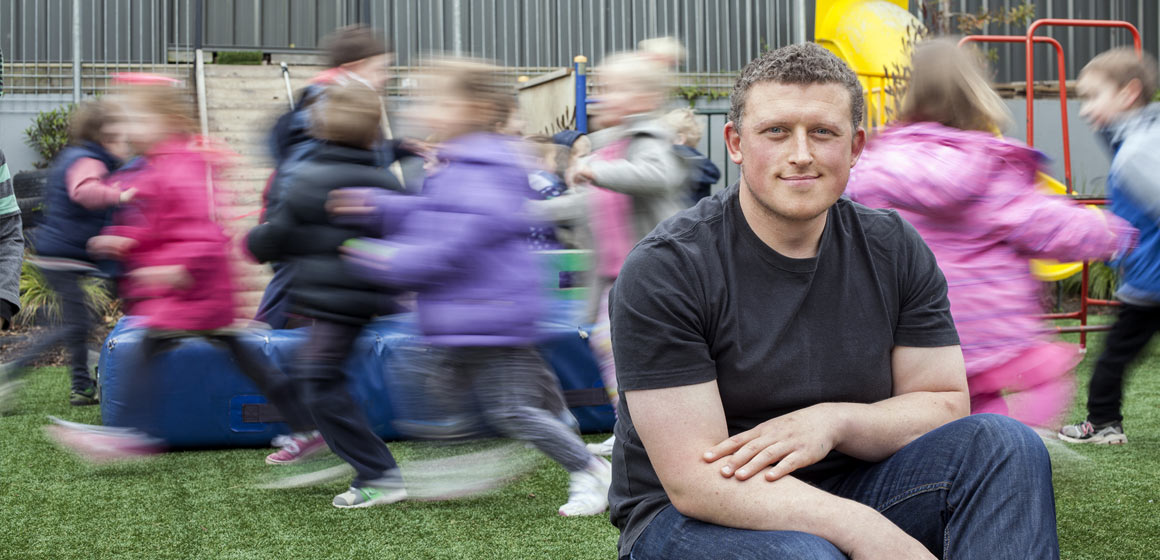 Monday 23 February 2015 12:54pm
Monday 23 February 2015 12:54pmHow young children exert self-control is central to work being carried out by Dr Damian Scarf of the Department of Psychology.
“It's known that children who can control their impulses grow up to be adults who can. This is accepted,” says Scarf.
“There's also a correlation between self-control and school readiness. The same reasons why children would fail self-control tasks may be why they get distracted in school.”
Scarf's longitudinal study employs a variation of the “Marshmallow Test”, with three-and four-year-old children given the choice between one sticker now or five stickers 15 minutes later. The children are filmed so their responses can be analysed.
“With the three year olds, it's always now. They're looking at the one sticker and don't even see you take away the five. Once you draw their attention to the critical aspects of the task, however, they behave more like a four year old,” he says.
“It isn't just about whether the child chooses the instant reward. It's also about where they're looking and for how long, and what delay strategies the successful kids use.”
These strategies include things such as distraction, looking or thinking about something else, or when the child focuses on the benefits of waiting.
Scarf's lab now has an eye tracker, which will give a more sensitive reading of what the children are looking at.
“The eye tracker is a powerful tool to see where attention is allocated – something I think is key to how they behave,” he says.
The project will follow up with children when they reach school, with teachers and parents completing questionnaires to see if the measures of attention allocation that were collected with the eye tracker relate to outcomes at school.
Scarf's interest in developmental work was fuelled while working as a post-doc in Vice-Chancellor Professor Harlene Hayne's Psychology Department laboratory. In addition to his own work, he continues to be part of her Mental Time Travel project, looking at what age children begin thinking of themselves in the future or the past.
Funding
- University of Otago Research Grant